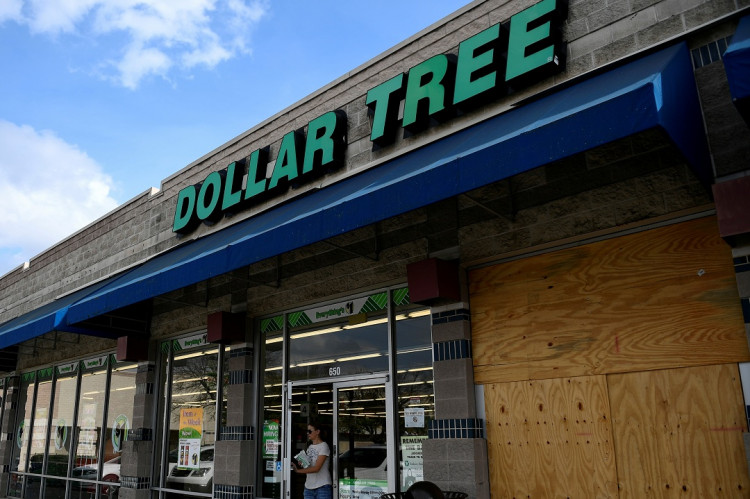Dollar Tree, the well-known discount retailer, saw its shares tumble more than 15% on Wednesday after the company cut its full-year forecast, citing mounting pressures on both middle- and higher-income customers. The downgrade reflects a broader struggle among discount retailers to maintain momentum as economic conditions shift and competition intensifies.
The company, which operates both the Dollar Tree and Family Dollar chains, announced that it now expects full-year consolidated net sales to range between $30.6 billion and $30.9 billion, down from its previous forecast of $31 billion to $32 billion. Adjusted earnings per share are also expected to decline, now projected to be between $5.20 and $5.60, compared to earlier estimates of $6.50 to $7.00.
Dollar Tree's Chief Financial Officer Jeff Davis attributed the revised outlook to softer sales and the ongoing costs associated with converting 99 Cents Only stores, as well as rising expenses related to customer accidents and other incidents at stores. "Our original second-quarter outlook did not anticipate those pressures migrating to Dollar Tree's customer base to the degree that they did," Davis said during an earnings call.
The company's second-quarter performance, which ended on August 3, further highlighted these challenges. Dollar Tree reported earnings per share of 62 cents and revenue of $7.38 billion, though it was not immediately clear how these figures compared to analysts' expectations. The slight increase in same-store sales, which rose by 0.7% overall, masked a deeper issue: while Dollar Tree's same-store sales grew by 1.3%, Family Dollar saw a slight decline of 0.1%, reflecting the differing dynamics within the company's two brands.
This disappointing performance comes on the heels of similar struggles faced by Dollar Tree's main rival, Dollar General, which also recently slashed its full-year sales and profit outlook. Dollar General's CEO, Todd Vasos, pointed to a "core customer who feels financially constrained" as a key factor in the company's weaker-than-expected results.
Dollar Tree's difficulties are emblematic of the broader challenges facing discount retailers. As inflation continues to pinch consumers, even the low-income shoppers who typically flock to these stores are being forced to make tough decisions about where to spend their limited resources. Meanwhile, competition from larger retailers like Walmart and newer e-commerce players like Temu is intensifying, offering customers even more options for low-cost goods.
In response to these pressures, Dollar Tree has been restructuring its business, including closing nearly 1,000 Family Dollar stores and exploring potential strategic alternatives for the brand, including a possible sale or spinoff. As of August 3, the company had already shuttered 655 stores and plans to close an additional 45 by the end of the year.
Despite these efforts, the company's stock has continued to suffer, losing nearly half of its value so far this year. On Tuesday, Dollar Tree shares hit a 52-week low of $81.65, and by Wednesday, they had fallen further to an over four-year low of $64.04.





